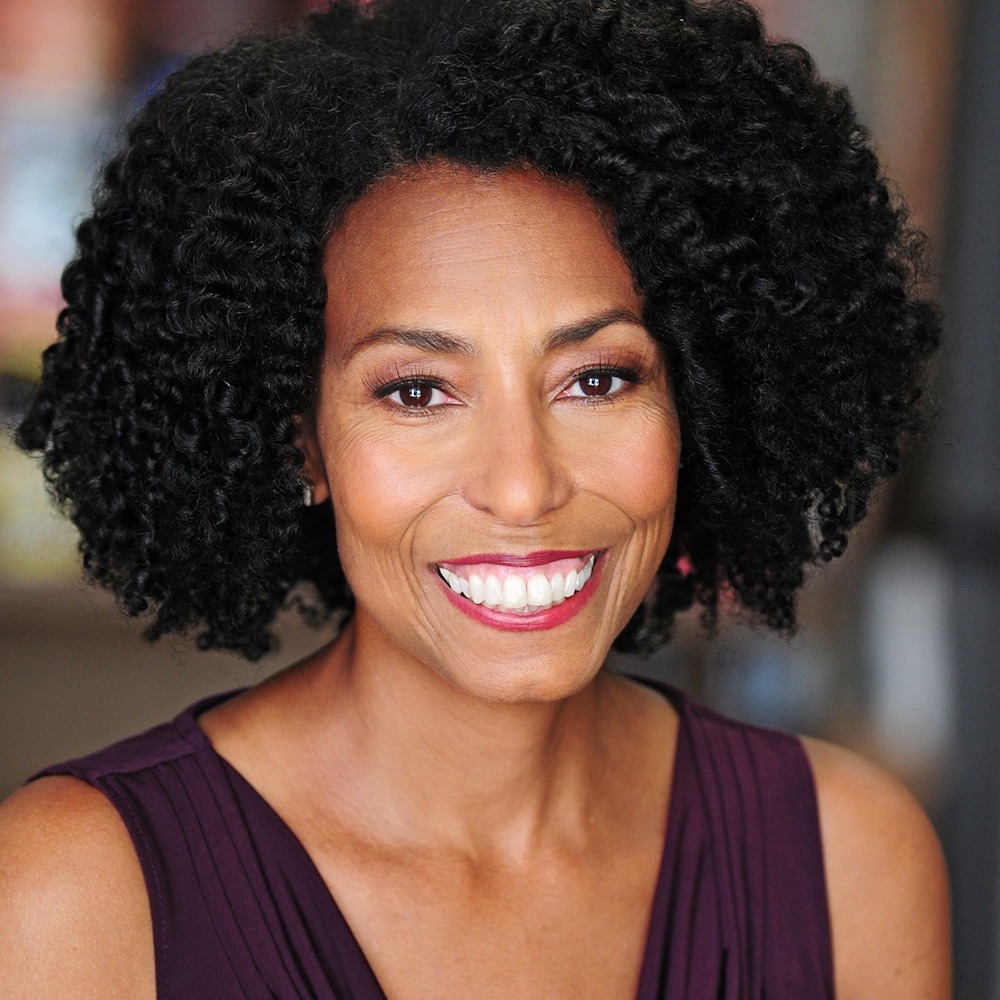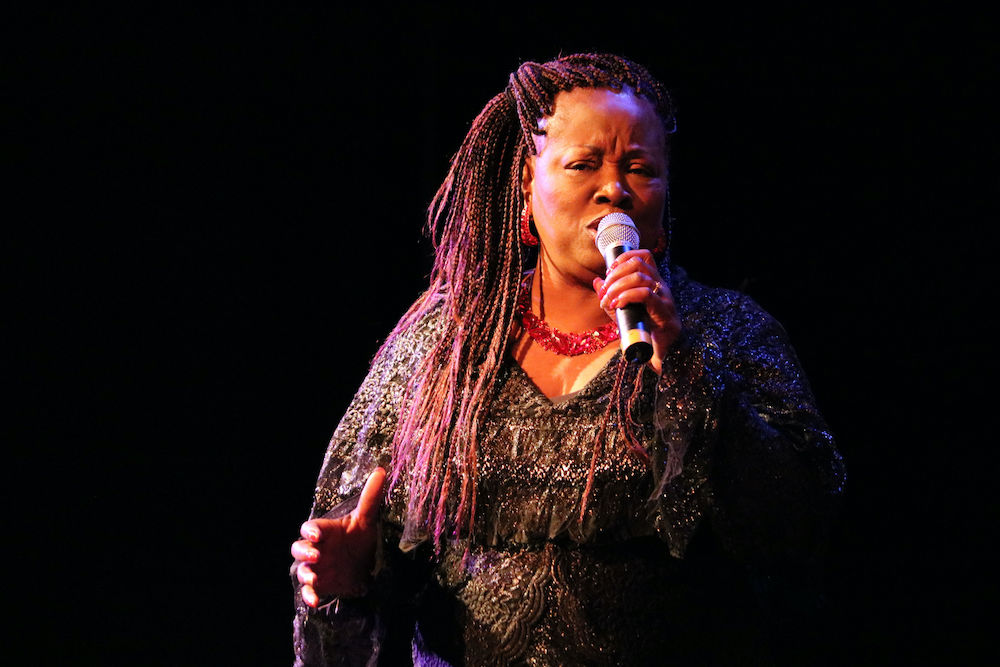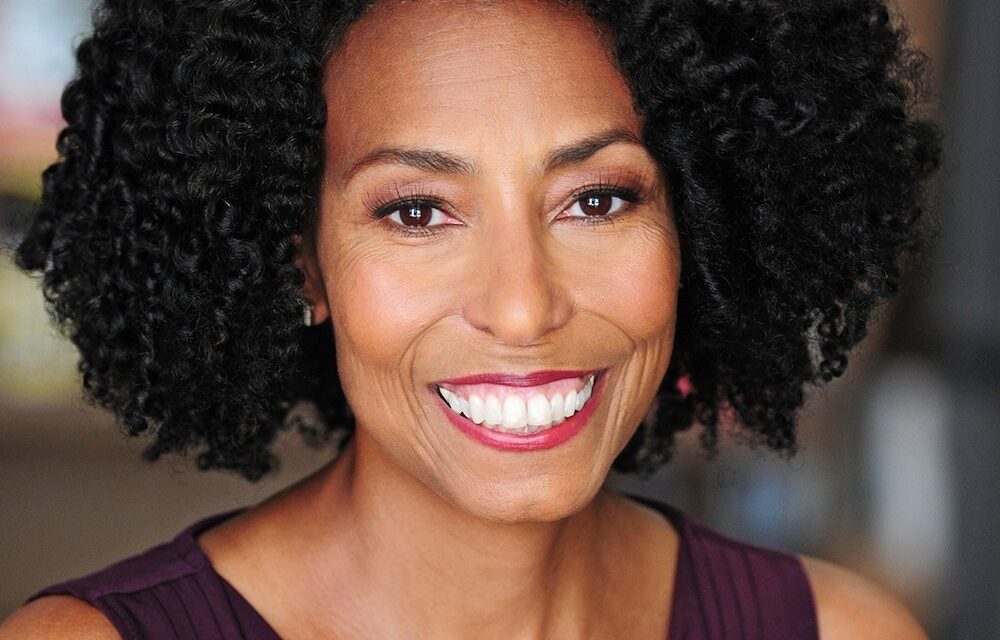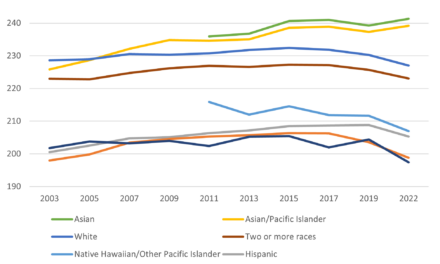The choreography of a conversation with Lorraine Hansberry Theatre‘s artistic director Margo Hall begins with joyful jetés. In September of 2020, Hall became the company’s first female leader in nearly 40 years. The group was founded in 1981 and named for playwright, director, and activist Lorraine Hansberry, who wrote the seminal play A Raisin in the Sun. Hall brings to LHT over 30 years of national, regional, and Bay Area theater experience. Her mission to provide space for female and nonbinary Black playwrights to thrive affirms every aspect of the company’s architecture.

“I came to LHT during the pandemic and there was a lot going on,” Hall tells 48hills. “One of the biggest [concerns] was, will theater survive? It was tough going. We were figuring out what live theater was going to be if the virus continued. How were we going to bring it to the community? We made it through that. That’s a triumph. Somehow, we fought through issues with budgets, paying people. We started with just two people on our staff, just me and executive director Stephanie Shoffner. In the last few years, we’ve acquired Julius Rea as production manager and a part-time marketing person, which is new for LHT over the last 10 years. Ian Fuller’s moving us forward with set donation levels, sophisticated marketing—not just Facebook and Instagram—and getting our donors involved with everything we do.”
“We’ve also matured as a company and we’re honing in on a vision. That is most exciting to me as its first female artistic director. I wanted and want to highlight Black female playwrights, leading actors, and stories. Unfortunately, that can be hard. You have to seek out and find these plays where Black women are at the forefront. they’re there, it’s just a matter of digging and creating new voices.”
She did experience some unexpected backlash when announcing this aim.
“I had one Black male playwright say, ‘Well, that’s discrimination. What happens to my play?’ I said, ‘Your play will have to go to another theater.’ I remember feeling shocked, because I thought people would say, ‘Wonderful! A platform for women that is for more than just one season and specifically for Black females.’ So that was hard, but it was few-and-far between. Most people, including men, have been entirely supportive.”
Continuing the dance (talking with Hall is an extremely visceral, dynamic experience), she pirouettes through highlights of the 2023-’24 season that begins with a December 14-17 run of the company’s high-spirited holiday favorite, Soulful Christmas.
The show this year is led by musical director Dr. Yvonne Cobbs, who cut her teeth working with musicians such as Pattie Labelle and Kirk Franklin and is a member of the Harmony Missionary Baptist Church in Oakland. In addition to having served as music director and featured artist in a prior production of Soulful Christmas, Cobbs has lent her talents to LHT’s Black Nativity, Mahalia: A Gospel Musical, and The Amen Corner.
“We are feeling celebratory,” says Hall. “A couple years ago, we were in Covid. This year, we can open our voices and have some hope. We can come to the theater and have a sense of comfort and that’s worth celebrating. It’s a kickoff into a season of joy.”
Two productions in 2024 align themselves with this season’s guiding themes of hope, healing, and self-care. Workshops and play-readings foster the works’ development, which will culminate in fully-realized staged productions at the Fort Mason Center for Arts & Culture.

(NO MORE) adjustments kicks of LHT’s New Black Voices Mentorship Program. The program is designed to support emerging BIPOC women and femme-identifying playwrights whose work carries social impact and relevancy to their communities.
Sponsored link
Created and performed by artist Champagne Hughes, (NO MORE)‘s one-person show interlaces healing therapeutic techniques with real-life stories.
“Champagne has a counseling psychology master’s degree in drama and sex therapy (from the California Institute of Integral Studies). I’m hesitating in calling [(NO MORE)] a play. She wrote it as her dissertation; a performance, as opposed to a written document. It wasn’t something she thought she’d recreate for the stage. It was about the challenges of being within an institution that may not recognize her as a Black student getting her degree in drama therapy. It’s almost like a new genre: it’s a work where audiences experience actual healing, but it’s also a performance with actors.”
During a recent (NO MORE) workshop, audiences were asked to write down their gatekeepers: Who prevented them from getting where they wanted to go, who led them astray, who caused trauma that left them in need of healing? The shared feedback will inform Hughes as the work continues to discover its final form and content.
Playwright Lisa B. Thompson’s The Black Feminist Guide to the Human Body continues the journey of healing at LHT. Employing poetry and spiritual dance, the play looks into aging and health disparities for Black women, and specifically, issues related to menopause and capitalism’s impact on Black individuals. The narrative is built on the story of a professor, an older woman experiencing the challenges of healing a body in a system that doesn’t embrace Black women’s pain.
“The medical system downplays or doesn’t acknowledge when we’re in pain emotionally and physically,” says Hall. “For this play, every performance will have a deep-rooted conversation talkback about taking care of yourself and each other, or activities such as exercise, engaging with sound healers, massage practitioners, and other healing elements.”
Offstage, LHT’s ongoing New Black Voices mentorship program will provide a space where emerging female playwrights can get the real deal from professional women mentors.
“It opens a setting for asking questions and getting answers from someone who understands and knows, for example, how the only Black writer on a television show navigates and not only creates a path, but has a voice. What techniques, training, do you need, going into predominantly White institutions and making sure your play remains your own? A lot of times, plays are changed to placate the audience. How do—or do you?—sacrifice your work to establish yourself?”
The program sends a confident message: You, a Black woman playwright, have a story that deserves to be heard, and is essential to the industry. Of course, the urgency of equity is felt not only in American theater, but across the globe. LHT expands the reach of its programming through readings at the Museum of the African Diaspora and other locations. Funding is a constant push. Grants, galas, donor mixers, and outreach beyond the home base in San Francisco are daily pursuits.
Hall is all about energy. “I’m looking forward to the fruits that will come out of this journey. To say, look at all of these Black women working; wow.”

She says strides in equity “happen, then get taken away, then happen.” A Broadway play by a Black playwright will premiere with a splash, then run only three months. Another will enjoy an extended run. Why that happens remains a mystery to Hall. But instead of dwelling on it, she devotes her focus to providing LHT with powerful consistency.
“I’m just focused on my little corner of the world and doing what needs to be done. I’m bringing in stories of women who’ve done CPR on this country. I’m bringing forward Black women’s voices; women who have suffered for over 400 years to be heard. The first Black female vice president, Kamala Harris, [was elected] in 2020. That’s ridiculous. It’s time to hear these stories and it’s about opportunity too. I want Black women’s voices in the mix, with tragedy, rom-com, drama, whatever they write.”
“We are human beings in the world and want to tell our stories,” Hall continues. “We don’t want it to be this or that. We just want space to produce our plays—and have it produced because it’s a damn good play. Equity should be normalized.”
Over the coming years, Hall is interested in supporting Black women science fiction writers—a group she believes is underrepresented in theater—and serving as a mentor and film and television producer.
“I want to put Oakland on the map and create a vibrant community for young people so it can become a large-scale film mecca, just like Los Angeles and Atlanta,” she says. “I want to bring that home. A year from now, I’ll be continuing to strengthen LHT and establish its community, and our activism. I’ve invested my time here in the Bay, and I want to offer my skills as a thought leader and activism to engage with folks we need to reach.”
SOULFUL CHRISTMAS runs December 14-17. Magic Theatre, SF. Tickets and more information here.





